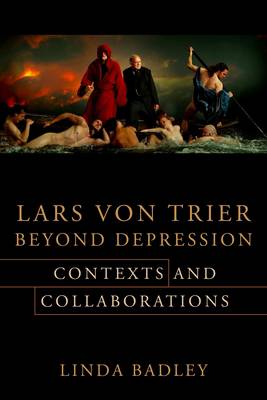
En raison d'une grêve chez bpost, votre commande pourrait être retardée. Vous avez besoin d’un livre rapidement ? Nos magasins vous accueillent à bras ouverts !
- Retrait gratuit dans votre magasin Club
- 7.000.000 titres dans notre catalogue
- Payer en toute sécurité
- Toujours un magasin près de chez vous
En raison de la grêve chez bpost, votre commande pourrait être retardée. Vous avez besoin d’un livre rapidement ? Nos magasins vous accueillent à bras ouverts !
- Retrait gratuit dans votre magasin Club
- 7.000.0000 titres dans notre catalogue
- Payer en toute sécurité
- Toujours un magasin près de chez vous
50,95 €
+ 101 points
Format
Description
Lars von Trier built a reputation as a provocateur from the start--but in the late 2000s, he entered an even more inflammatory phase. Amid Cannes controversies, Antichrist (2009), Melancholia (2011), Nymphomaniac (2013-14), and The House That Jack Built (2018) brandished the cinematic virtuosity von Trier once banned under the Dogme 95 Manifesto while subjecting audiences to "extreme" cinema. Following von Trier's experience of clinical depression in 2006 and 2007, these films took an aggressively personal and retrospective turn against the backdrop of the director's controversy-courting public appearances.
Playing against widespread assumptions, Linda Badley takes a reparative approach, offering an in-depth examination of these four films and the contexts that produced them. Drawing on numerous interviews with the director and his collaborators as well as inside access to archival materials, she provides a thorough and comprehensive account of von Trier's preproduction and creative process. Highlighting a transmedial turn, Badley tracks von Trier's artistic touchstones from Wagner, Proust, and the Marquis de Sade to Scandinavian erotic cinema and serial killer genre tropes. She considers his portrayals of mental illness and therapy, gender and sexuality, nature and extinction, shedding light on the thematic concerns that unite these films as a distinct cycle. Offering nuanced readings of these films, the book emphasizes the significance of von Trier's work for current critical and philosophical debates, showing how they engage with notions of the Anthropocene, "dark ecology," and the postcinematic.Spécifications
Parties prenantes
- Auteur(s) :
- Editeur:
Contenu
- Nombre de pages :
- 304
- Langue:
- Anglais
Caractéristiques
- EAN:
- 9780231191531
- Date de parution :
- 15-02-22
- Format:
- Livre broché
- Format numérique:
- Trade paperback (VS)
- Dimensions :
- 152 mm x 229 mm
- Poids :
- 385 g

Les avis
Nous publions uniquement les avis qui respectent les conditions requises. Consultez nos conditions pour les avis.






